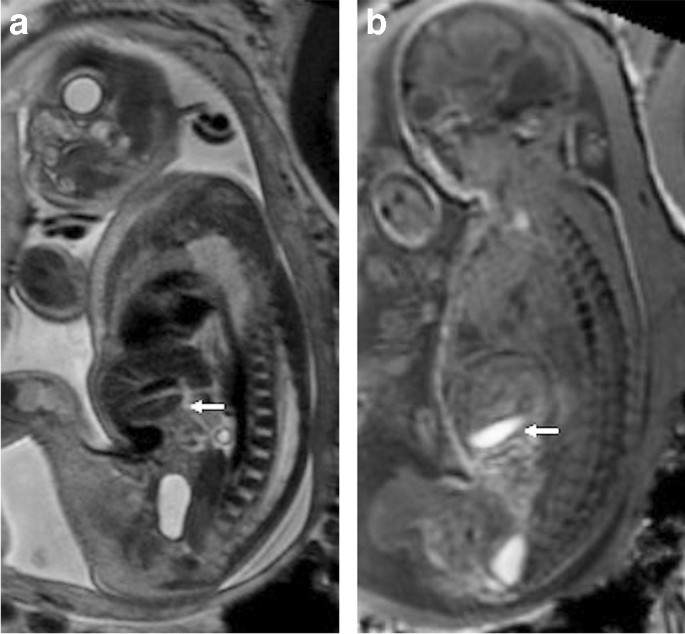
Fetal magnetic resonance imaging (MRI)
Fetal Magnetic Resonance Imaging (MRI) is a cutting-edge diagnostic tool that has revolutionized prenatal care. In Nagpur, Dr. Ritesh Nawkhare is a renowned expert in this field, offering state-of-the-art fetal MRI services. This comprehensive guide delves into the intricacies of fetal MRI, its benefits, the process, and why Dr. Ritesh Nawkhare is the go-to specialist in Nagpur for this advanced diagnostic procedure.
What is Fetal Magnetic Resonance Imaging (MRI)?
Fetal MRI is a non-invasive imaging technique that uses powerful magnets and radio waves to create detailed images of the fetus inside the womb. Unlike ultrasound, which is the standard prenatal imaging tool, fetal MRI provides higher resolution images, especially of the fetal brain and other complex structures. This makes it an invaluable tool for diagnosing and managing a wide range of fetal conditions.
Why Choose Fetal MRI?
- Complex Fetal Anomalies: Fetal MRI can provide detailed images of the brain, spine, and other organs, helping to diagnose conditions such as neural tube defects, congenital heart defects, and abdominal wall defects.
- Placental and Umbilical Cord Issues: MRI can assess the placenta’s position and health, as well as detect abnormalities in the umbilical cord.
- Multiple Pregnancies: In cases of twins or higher-order multiples, fetal MRI can provide detailed information about each fetus, including their positions and any potential complications.
- Maternal Health Concerns: If the mother has a medical condition that could affect the fetus, such as cancer or infections, fetal MRI can help assess the impact on the developing baby.
The Fetal MRI Process
- Preparation: Before the scan, the mother may be asked to avoid eating or drinking for a few hours. She will be briefed about the procedure and any potential risks, although fetal MRI is considered safe for both mother and baby.
- During the Scan: The mother lies on a comfortable table that slides into the MRI machine. The procedure is painless and typically takes 30 to 60 minutes. The machine makes loud knocking sounds, so ear protection is provided.
- Post-Scan: After the scan, the images are analyzed by a radiologist, such as Dr. Ritesh Nawkhare, who specializes in fetal MRI. The results are then discussed with the referring obstetrician or maternal-fetal medicine specialist to determine the next steps in care.
Why Dr. Ritesh Nawkhare is the Best Choice for Fetal MRI in Nagpur
- Expertise and Experience: Dr. Nawkhare has extensive experience in performing and interpreting fetal MRI scans. His expertise ensures accurate diagnoses and effective management plans.
- State-of-the-Art Technology: Dr. Nawkhare uses the latest MRI technology, ensuring high-quality images and minimal discomfort for the mother.
- Comprehensive Care: Dr. Nawkhare works closely with obstetricians, maternal-fetal medicine specialists, and other healthcare providers to offer a multidisciplinary approach to prenatal care.
- Patient-Centered Approach: Dr. Nawkhare is known for his compassionate care and dedication to his patients. He takes the time to explain the procedure, answer questions, and provide support throughout the process.
Benefits of Fetal MRI in Prenatal Care
- Early Detection and Diagnosis: Fetal MRI can detect abnormalities early in pregnancy, allowing for timely intervention and management
- Detailed Imaging: The high-resolution images provided by fetal MRI offer a clearer view of the fetus’s anatomy, aiding in accurate diagnosis and treatment planning.
- Non-Invasive and Safe: Fetal MRI does not use ionizing radiation, making it a safe option for both mother and baby.
- Improved Outcomes: Early and accurate diagnosis through fetal MRI can lead to better outcomes for both the mother and the baby, reducing the risk of complications during pregnancy and delivery.
Common Conditions Diagnosed with Fetal MRI
- Central Nervous System (CNS) Anomalies: Fetal MRI is particularly useful in diagnosing conditions such as ventriculomegaly, agenesis of the corpus callosum, and neural tube defects.
- Thoracic Anomalies: Conditions such as congenital diaphragmatic hernia and lung lesions can be accurately diagnosed with fetal MRI.
- Abdominal Wall Defects: Fetal MRI can detect conditions like gastroschisis and omphalocele, providing detailed information for surgical planning.
- Placental and Umbilical Cord Abnormalities: MRI can assess placental position, detect placenta accreta, and evaluate umbilical cord abnormalities.
Conclusion
Fetal Magnetic Resonance Imaging (MRI) is a powerful diagnostic tool that offers detailed insights into the developing fetus, aiding in the early detection and management of a wide range of conditions. In Nagpur, Dr. Ritesh Nawkhare is a leading expert in fetal MRI, providing high-quality, patient-centered care. With his expertise, state-of-the-art technology, and compassionate approach, Dr. Nawkhare ensures that expectant mothers receive the best possible care for themselves and their babies.Contact Us
Fetal Magnetic Resonance Imaging (MRI) is a powerful diagnostic tool that offers detailed insights into the developing fetus, aiding in the early detection and management of a wide range of conditions. In Nagpur, Dr. Ritesh Nawkhare is a leading expert in fetal MRI, providing high-quality, patient-centered care. With his expertise, state-of-the-art technology, and compassionate approach, Dr. Nawkhare ensures that expectant mothers receive the best possible care for themselves and their babies..Schedule your Consultation with Dr. Ritesh Nawkhare
